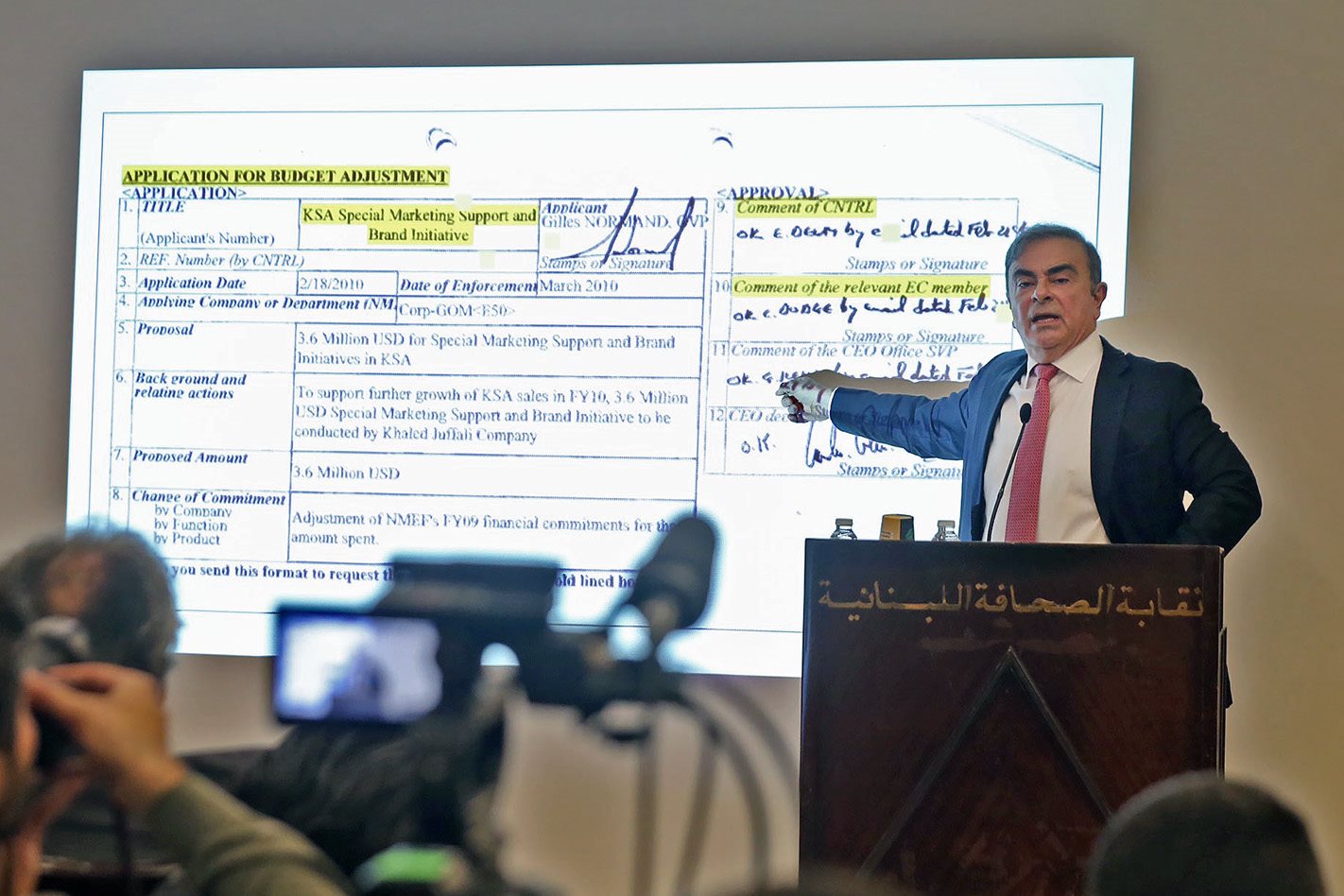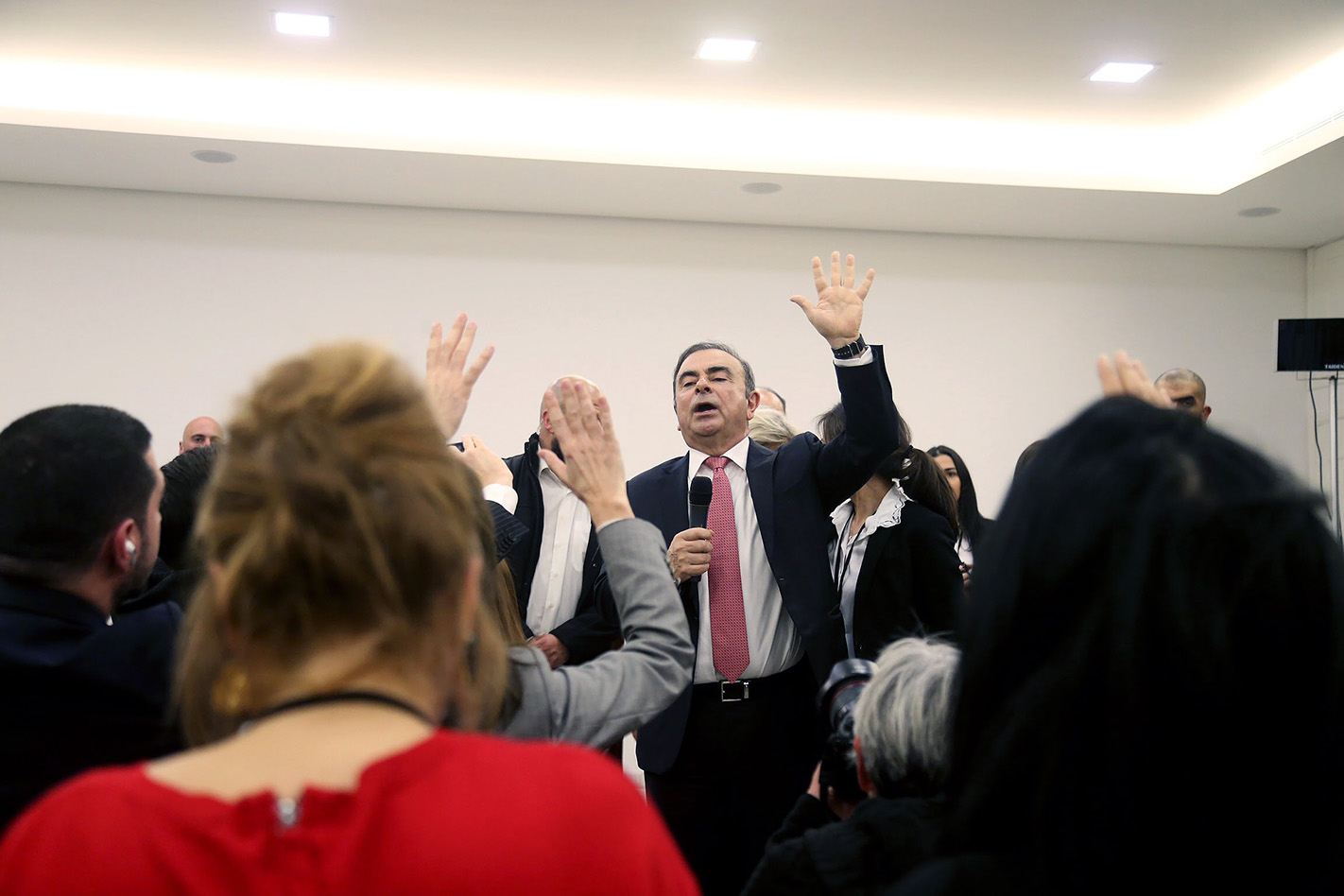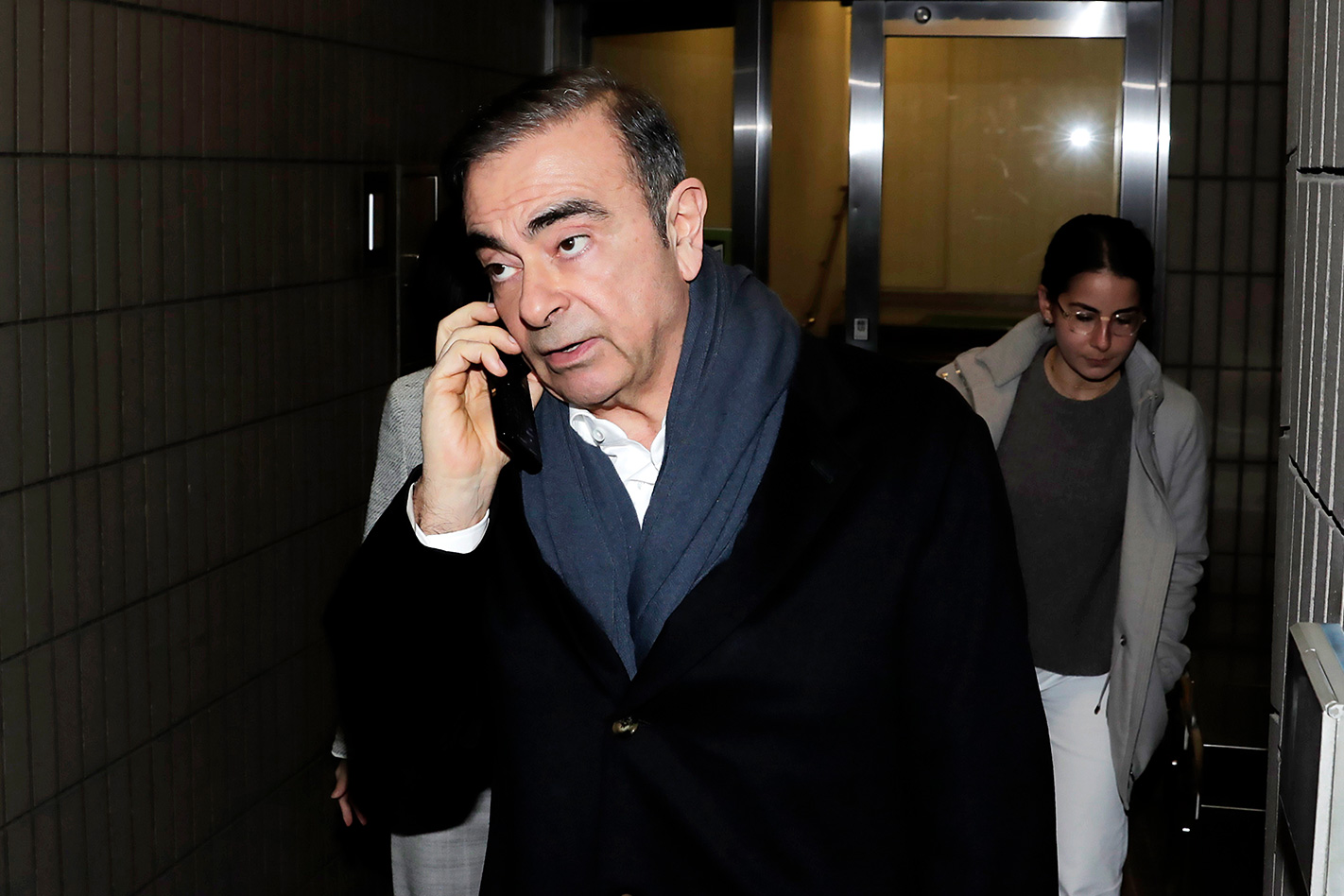
In a chaotic press conference held in Beirut, fugitive ex-Nissan chairman Carlos Ghosn has defended his dramatic flight from Japan and said that he “was left with no other choice”.
Arrested in Tokyo in 2018 for allegedly misappropriating millions of dollars of Nissan funds by underreporting his pay, Ghosn has since spent around four months in Japan’s notorious prison system and around nine months under close surveillance at his Tokyo home.
However, late last month the disgraced former chairman managed to slip past the 24-hour security net at his house and resurfaced in Beirut, Lebanon – which is not only his ancestral home, but also a country that doesn’t have an extradition treaty with Japan.
He managed to flee the country and bypass its immigration controls by boarding a private jet at a regional aiport near Osaka, which then flew him to Turkey where he boarded another private jet bound for Beirut.
Now essentially a free man in Lebanon, Ghosn held a press conference to give his side of the story to the world’s media.
“Today is a very important day for me. One that I have looked forward to every single day for more than 400 days since I was brutally taken from my world as I knew it. I have not experienced a moment of freedom since November 19, 2018. It is impossible to express the depth of that deprivation.”
Ghosn then recounted how, one year ago, he had his charges presented to him in a Tokyo courtroom while wearing handcuffs and shackled around the waist.
“I had spent the previous months being interrogated for up to 8 hours a day without any lawyers present, without an understanding of what I was being accused of, without access to the evidence that justify this travesty against my human rights and dignity.

“‘it will get worse for you if you don’t confess’, the prosecutor told me repeatedly – and this has been taped. ‘And if you don’t confess, not only are we going to go after you, we are going to go after your family’.”
“The feeling of hopelessness was profound, and every day for 130 days in detention, I fought for my innocence. When I was finally granted bail for the first time, and so [had] the opportunity to share with you all what I intend to share today, I was ruthlessly thrown back into solitary confinement within 24 hours, a confinement that flies in the face of global and United Nations standards of justice.”
“This is why today is such an important day for me.”
I am not here to talk about how I managed to leave Japan, although I can understand that you are interested in that. I am here to talk about why I left.
“I am here to shed light on a system that violates the basic principles of humanity. I’m here to clear my name and to pronounce clearly and emphatically something that was interpreted as a heresy in the Japanese legal system: that these allegations are untrue, and I should never have been arrested in in the first place.
“Thanks to the systematic leaking of false information and distorted information and the intentional withholding of information by the prosecutor and by Nissan , I was presumed guilty before the eyes of the world and subject to a system whose only objective is to coerce confessions, secure guilty pleas without regard to the truth.
“I have come to learn that my unimaginable ordeal of the past 14 months is the result of a handful of unscrupulous vindictive individuals at Nissan [and] at the Latham and Watkins law firm, with the support of the Tokyo prosecutor’s office.”

According to Ghosn, the allegations that he embezzled funds were a central part of a strategy by Nissan senior management to permanently remove him as head of the company. A move he says was motivated by their desire to avoid a merger with Nissan’s alliance partner Renault, which would have reduced Nissan’s autonomy even further.
Currently Renault holds a 43.4 percent share of Nissan, while Nissan only holds a 15 percent stake of Renault. That imbalance in the equity share has long been a contentious issue at Nissan’s Yokohama headquarters.
However, whether Ghosn will ever get his chance to defend himself in a court of law remains unclear – as does the jurisdiction that court will lie within. Suffice it to say, it won’t be in Japan.
“I did not escape justice, I fled injustice and persecution – political persecution”, he said.
“I would be willing to stand trial anywhere where I think I could have a fair trial”



